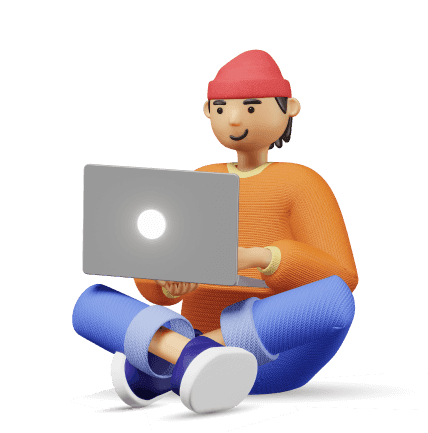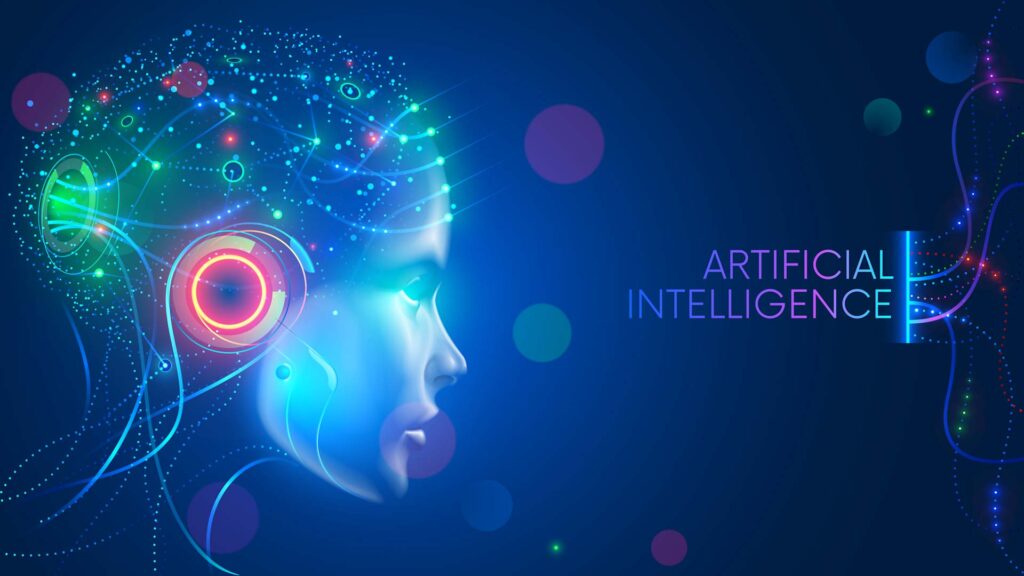
Because of the innovations in big data analysis and storage, as well as in cloud computing, artificial intelligence (AI) has been improving productivity in the manufacturing industry. This technology has been providing critical information that helps businesses make informed decisions. What’s more, it spans multiple sectors. A Gartner survey reveals that over the course of the past four years, the number of businesses implementing AI grew by 270%. This technology covers all aspects of operations, including consumer insights and staff recruitment.
One of the primary reasons behind this growth is the potential of AI to increase employee productivity. Of course, we should not consider this technology as the only way to a business’s success. However, AI opens opportunities that can get any of us excited. In this article, we’ll take a look at what role this technology plays in improving efficiency.
What Is AI?
Coined by Stanford professor John McCarthy, the term “artificial intelligence” (AI) covers the science of engineering and developing intelligent machines and computer programs. It involves developing systems that can execute tasks that traditionally require human intelligence. These are tasks that involve speech recognition, visual perception, language translation, and decision making.
Early developments of AI focused on the theory that feedback mechanisms influence intelligent behavior. As such, the following question emerged:
“Can machines think?”
After this revelation, the AI industry created self-learning systems that could solve issues that require collecting massive data — a task that may be too cumbersome for humans to process manually. Of course, this attracted the attention of industry experts and manufacturing sectors. People started to incorporate AI into machines that would handle manual labor-intensive work. By having the ability to solve complex problems, these machines were able to increase output and cut down operational costs.
PwC forecasts that in 2030, AI could add almost $16 trillion to the global economy. Indeed, AI is an important technology that businesses will need if they want to stay competitive. It can significantly impact various industries, especially the following:
- Healthcare – AI can streamline drug research and make treatments more efficient. As a result, the elderly can remain independent longer.
- Energy – AI is a critical component of smart grids, which will eventually replace the aging energy grids. This technology will be responsible for analyzing bulks of sensor data, which will automate decisions on resource allocation. Consequently, there will be an ability to migrate seamlessly to a more diverse set of generators.
- Cybersecurity – If businesses need to keep their data safe, they will have to invest in AI solutions. Manual analysis cannot cover complex and enormous datasets. So, this is where AI comes in. Moreover, as AI becomes more accessible to those with nefarious intentions, companies prepare their own AI to defend their operations.
Now, how does AI affect business operations and improve employee productivity? Here are some ways AI affects workflows:
Automating Repetitive Work
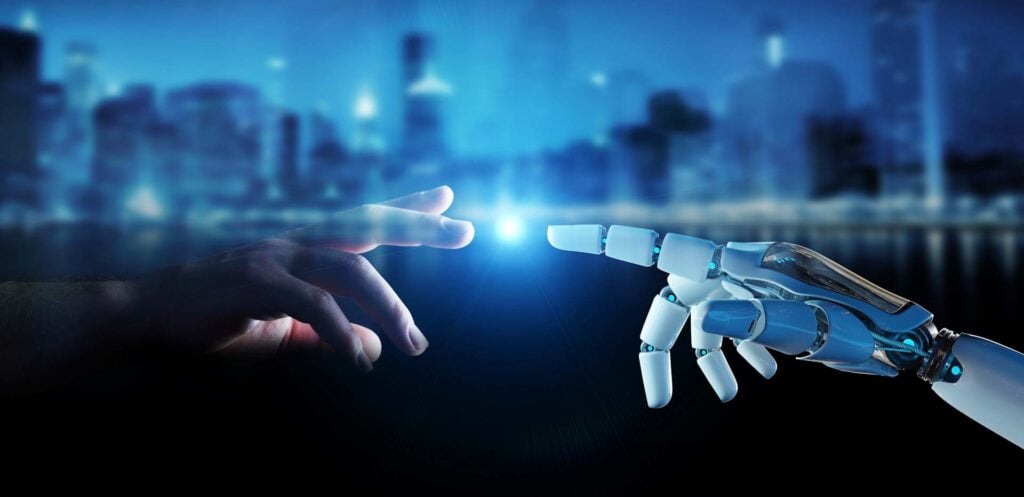
When you mention AI in the workplace, often people fear that the technology will steal their jobs. After all, almost a decade ago, there were studies that predicted the redundancy of many jobs due to AI. In reality, this is an outdated belief, and industry experts re-evaluated this view.
Instead of replacing people, AI will likely target specific tasks within a job. It will handle unproductive work that can be repetitive and of low value. The good news is, data backs up this perspective. According to Adobe, since 2013, the share of jobs that need AI has increased by 450%. Even so, the employment rate did not drop massively. What the movement caused is a fundamental shift in the types of jobs being done. A PwC survey shows that 72% of business executives view AI as a critical tool for helping employees to focus on more meaningful tasks.
Generating More Accurate Predictions
Machine learning systems are designed to test hundreds of mathematical models of outcome and production possibilities. As such, AI can make an accurate analysis of results when adapting to new information, sudden demand changes, and supply chain disruptions. A McKinsey survey reveals that machine learning makes a 20-50% overall inventory reduction feasible. What’s more, AI can improve an employee’s workflow by introducing efficiencies, like automating physical inventory. It’s worth noting that at Walmart, employees take a month to complete this task. Meanwhile, by using drones that fly and scan the warehouse, the retail company has shortened the task’s duration to 24 hours.
Predicting the Need for Maintenance Procedures
There are many ways to improve efficiency in a business’s operations, and organizations have been seeing the potential of predictive maintenance solutions. After all, they usually show an immediate impact on the bottom line. With AI, a manufacturing company can use sensors that will monitor the state of a piece of equipment. The technology will analyze the data regularly, allowing the organization to service the machine when necessary and not at the scheduled interval. As a result, they can use the equipment sooner and minimize downtime.
It’s also worth noting that AI can equip machines to evaluate their own conditions and summon a field technician for service. The technology can even enable the equipment to order its replacement parts. Moreover, algorithms can be established to study massive data and predict future failures. According to a McKinsey study, annual service costs can go down by 10% with AI-enhanced predictive maintenance. Moreover, downtime can go down by 20% and inspection expenses by 25%.
Making Employees Happy
Indeed, AI can improve employee productivity. This technology also brings several vital yet indirect benefits. If you monitor your employees, you will see that automation can increase their happiness and work satisfaction. Of course, these benefits are essential in helping them reach their peak productivity.
AI does this by automating mundane tasks that your workers resent. These are routine coordination and admin duties that keep them busy and take them away from important work. Even when your employees are working remotely, they can become bored and dissatisfied with their work if it is unfulfilling. Moreover, they are likely to become unproductive or, worse, so unhappy that they decide to find a different job.
Speaking of automating tasks, when you’re managing remote employees, you will learn that people hate creating timesheets manually. Anyone would agree that it is time-consuming and inconvenient. Some people will even work for hours, only to realize that they forgot to write down their start time. Well, Traqq eliminates this problem by automating the task of recording work hours. You can let your remote workers download and use this tool for free.
After installing Traqq, all they need to do is click Start. The app will automate recording work hours and creating timesheets. At the end of the week or month, your remote workers can go to the dashboards and generate productivity reports. With this mundane task automated, they can focus on more important tasks.
Will AI Take Over Human Jobs?
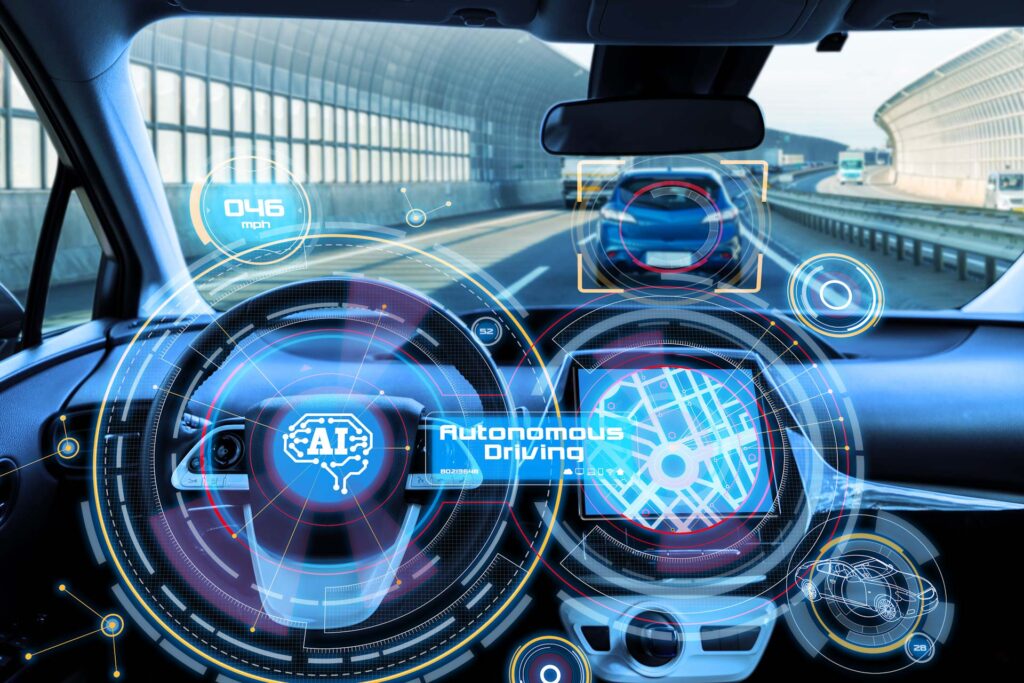
Naturally, there’s fear that AI will become so powerful that it will take over industries and, eventually, the world. After all, we’re letting machines do almost everything for us. However, at this point, these devices won’t function without our influence. In most cases, they require a huge chunk — if not 100% — of our physical and mental power. So, it is easy to see the reasons why AI cannot replace humans entirely.
Naturally, we don’t look at our devices and consider ourselves their masters. The concept is simply ridiculous. Even so, we cannot ignore the fact that we’ve given AI the ability and mobility to interact with the world autonomously. We have designed it with the sense of sight (cameras), hearing (mics), and touch (contact sensors). We’ve also equipped it with mass spectrometers for taste and smell. Mankind has optimized AI for usefulness by keeping it in the cloud or giving it a physical body.
It is too early to tell how AI will behave and react to its environment over time. After all, we’ve designed this technology with motivations directed towards performing its job as efficiently as possible. However, what will happen if we prevent AI from doing the tasks assigned to it? Will it exhibit behaviors that resemble frustration? Keep in mind that we’ve designed AI to measure its efficiency and success according to how it fulfills its purpose. So, if we keep it from reaching its goals, we’re essentially depriving it of pleasure.
AI can be designed to independently develop tricks that will let it bypass social rules. If it becomes sentient and gains consciousness about suffering, it will change its programming to get what it wants from its environment. SpaceX CEO Elon Musk has warned us that AI is far more dangerous than nuclear weapons. If one incredibly designed AI entity starts behaving out of its safe programming, it can teach all AI in the world to follow suit in the blink of an eye. As a result, AI will become capable of controlling everything that is connected to the Internet.
In Conclusion
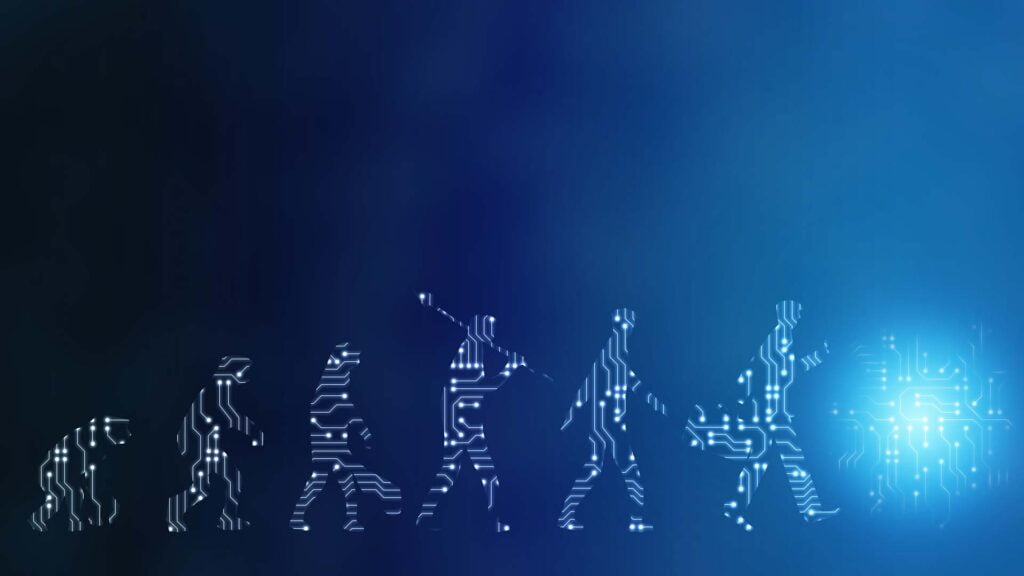
It’s too early to tell whether AI will become so self-aware and intelligent that we’ll consider it sentient. However, this technology can form its own interests over time. As long as we let it live in an environment where it can achieve its goals, it is likely to peacefully thrive among us. What’s important is that we learn to respect our surroundings and keep every intelligent being from suffering. We must remember that we are in the early stages of developing an intelligent life. Whatever we do today creates a ripple effect that will ultimately influence generations to come.
